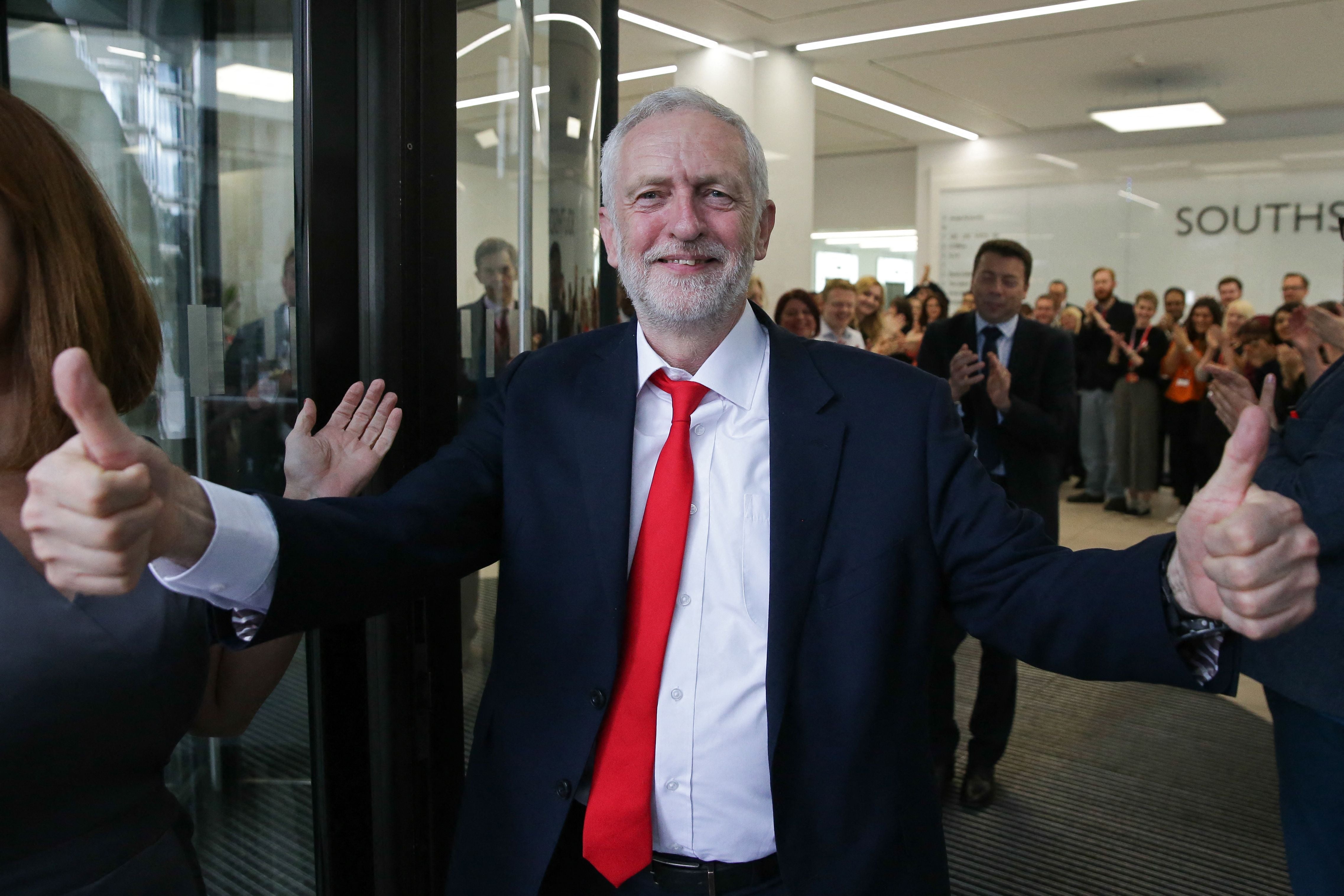The future for Labour lies in its 2017 manifesto
That manifesto is needed even more today, and our first-past-the-post voting system means Labour is the only viable option to deliver it, writes Jamie Driscoll

Cast your mind back to May 2017. Theresa May’s snap election had looked a certain bet, then the Labour manifesto was launched. Bold social democratic policies captured the imagination: public ownership of rail, mail, water and energy. Strong on workers’ rights and reversing austerity. From 20 points behind, we were closing rapidly.
Then came the Manchester Arena attack on the 22 May, when a suicide bomber murdered 22 people, including children, at an Ariana Grande concert. Some 1,017 others were injured. Political orthodoxy predicted a “rally round the flag” effect would consolidate the Tory vote and halt Labour’s progress. But Labour defied orthodoxy and said if you want a peaceful Britain, you have to work for a peaceful world. With 41 per cent of the vote, Labour came close. But not close enough.
Fast forward five years – yes, it’s only been five years – and hope wears thin. Within that period the nation has endured the following: Grenfell, Cambridge Analytica, Windrush, Tommy Robinson, Boris Johnson comparing burqas to letter-boxes, Angela Smith’s “funny tinge” remark, Farage winning the European elections, Alistair Campbell voting Lib Dem, Theresa May’s resignation and Boris Johnson becoming PM.
We’ve had the promise of levelling up, parliament prorogued, a Tory landslide, Keir Starmer’s Ten Pledges, Brexit, Covid restrictions (widely being ignored), PPE corruption, Zoom, clap for our carers, Andy Burnham’s fight for the north, bodies piling high in their thousands, Jeremy Corbyn’s whip removed, a vaccine bounce, the Hartlepool by-election, Labour proscriptions, Andy McDonald’s resignation, a £20 universal credit cut, COP 26, number 10 cake ambush, Brexit unravelling, Ukraine invaded, energy hikes, inflation bites, the Forde Report, Johnson defenestrated, Truss on the march, rail strikes, Mick Lynch wins the argument, Sam Tarry sacked, unions fighting back, the world burning.
Phew! No wonder were all exhausted. And angry. It sounds like a Billy Joel song.
You might have joined Labour with the Corbyn surge of hope. You might have been a Labour member all along. The temptation to say “stuff it” and walk away is strong. Some have left the Labour Party. But I believe it’s called struggle for a reason. I don’t like Johnson or Truss, but I won’t remove myself from the electoral register. I’ll keep my vote and use it.
A world where billionaires extract wealth by impoverishing people, then offshore their profits while the planet burns, is unsustainable on any level. The British public agree. On a policy-by-policy basis, Labour’s 2017 and 2019 manifestos are hugely popular. Survation’s poll this August showed 69 per cent want publicly owned water, versus 11 per cent who want it privately owned. It’s the same for buses, rail, mail, and energy, to within a couple of per cent.
There’s a reason inflation is rampant and poverty is endemic. There’s a reason workers are striking and coordinated industrial action is on the cards. The world is still using the economic model that caused the 2007-8 crash. Debt, speculation and fossil fuels are preferred to investment in people and public infrastructure. Unless that changes, any government – under any leader – will fail to provide financial security.
Building a better world means challenging the status of the mega-rich. It means challenging the right-wing myths as myths. Reversing privatisation, reversing inequality, and taxing wealth. Eradicating hunger and homelessness for good.
We know that paints a target on our backs. Times have changed. Millions are unable to pay their bills. The public back the unions. That 2017 manifesto is needed even more today, and our first-past-the-post voting system means Labour is the only viable option to deliver it.
What stings most is that we saw this coming, and cried out “Why is no one listening?”. Our demands are pragmatic, not dogmatic. I work with businesses every day to create jobs with good pay and conditions. I work with them in our child poverty prevention work, our Green New Deal and tackling the climate crisis. Britain has 5.6 million small business owners. Labour should be pro-business – where businesses are ethical. But strategic infrastructure and services should be in public hands. Surpluses should be reinvested, not extracted for distant shareholders.
The UK’s next prime minister will be chosen not by the British people, but by 160,000 Tory members. In the last 50 years, there have been 10 Labour leaders. Win or lose, there will be another leadership election. And another one after that. And parliamentary selections.
To keep up to speed with all the latest opinions and comment, sign up to our free weekly Voices Dispatches newsletter by clicking here
Keep your vote, and use it. In 2015, 2016 and 2020, Labour members chose leaders who promised to renationalise rail, mail, energy and water, end tuition fees, and reverse anti-union legislation.
Hope fades when change seems impossible. But we’re on a rollercoaster of change. It’s been 25 years since the 1997 victory. The 90s playbook is history. When John Major fought a leadership election in 1995, around 60 per cent of the public said they’d vote Labour. In 1997 we polled 43.2 per cent. Today, Labour has an 80 seat majority to overturn, voter suppression and possible boundary changes to deal with.
The next 25 years will be more unstable than anything since the Second World War. The struggle for dignity, equality and prosperity will be fought against a backdrop of climate breakdown, resource shortages, and global instability.
We haven’t got time to sit this one out and wait.
Jamie Driscoll is a British Labour and Co-operative Party politician who currently serves as the metro mayor of the North of Tyne Combined Authority
Join our commenting forum
Join thought-provoking conversations, follow other Independent readers and see their replies
Comments
Bookmark popover
Removed from bookmarks